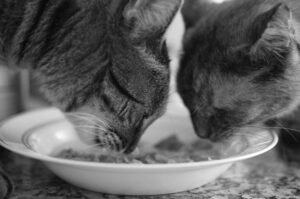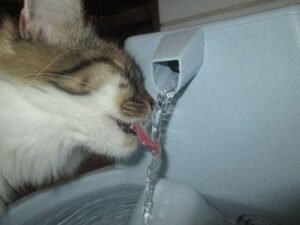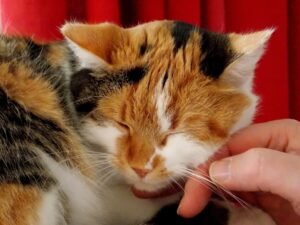Poop may be unpleasant, but it’s important for cats to poop regularly to maintain a healthy body. Your kitten should poop at least once a day, regardless of age. If it doesn’t, the cat might have constipation or another medical problem. This article covers everything you need to know about cat discharge, what causes cats not to discharge, and home remedies to help establish a healthy discharge routine.

Signs
1.Crying/Growling/Meowing while pooping.
2.No defecation.
3.Hard, dry stools.
4.Scooting.

Causes
1.Not having enough soluble fiber in the diet.
2.Eating hairballs during grooming.
3.Intestinal obstructions.
4.Dehydration.
5.Tumors.
6.Too much fiber in food.
7.A dirty litter box.
8.Birth defects. 

What to do?
First, setting up an appointment with a vet is the best option for your cat’s well-being.
- Switch to a wet food diet.
- Provide fresh water or a water fountain to maximize hydration.
- Add one tablespoon of pumpkin once or twice a day to the food.
- Add one teaspoon of ground flaxseed to the food to increase fiber.
- Include sardine oil or fish oil in the cat’s food.
- Add cat-safe probiotics to the food.

- Conclusion
Constipation in cats is a serious issue that should never be ignored, as it can lead to significant health risks, including serious harm and even death. While home remedies and dietary adjustments can be helpful, the best course of action is to consult a veterinarian for a professional diagnosis and treatment. By addressing the problem early and following your vet’s recommendations, you can help ensure your cat’s health and well-being. If you notice signs of constipation, take action immediately to avoid complications.

